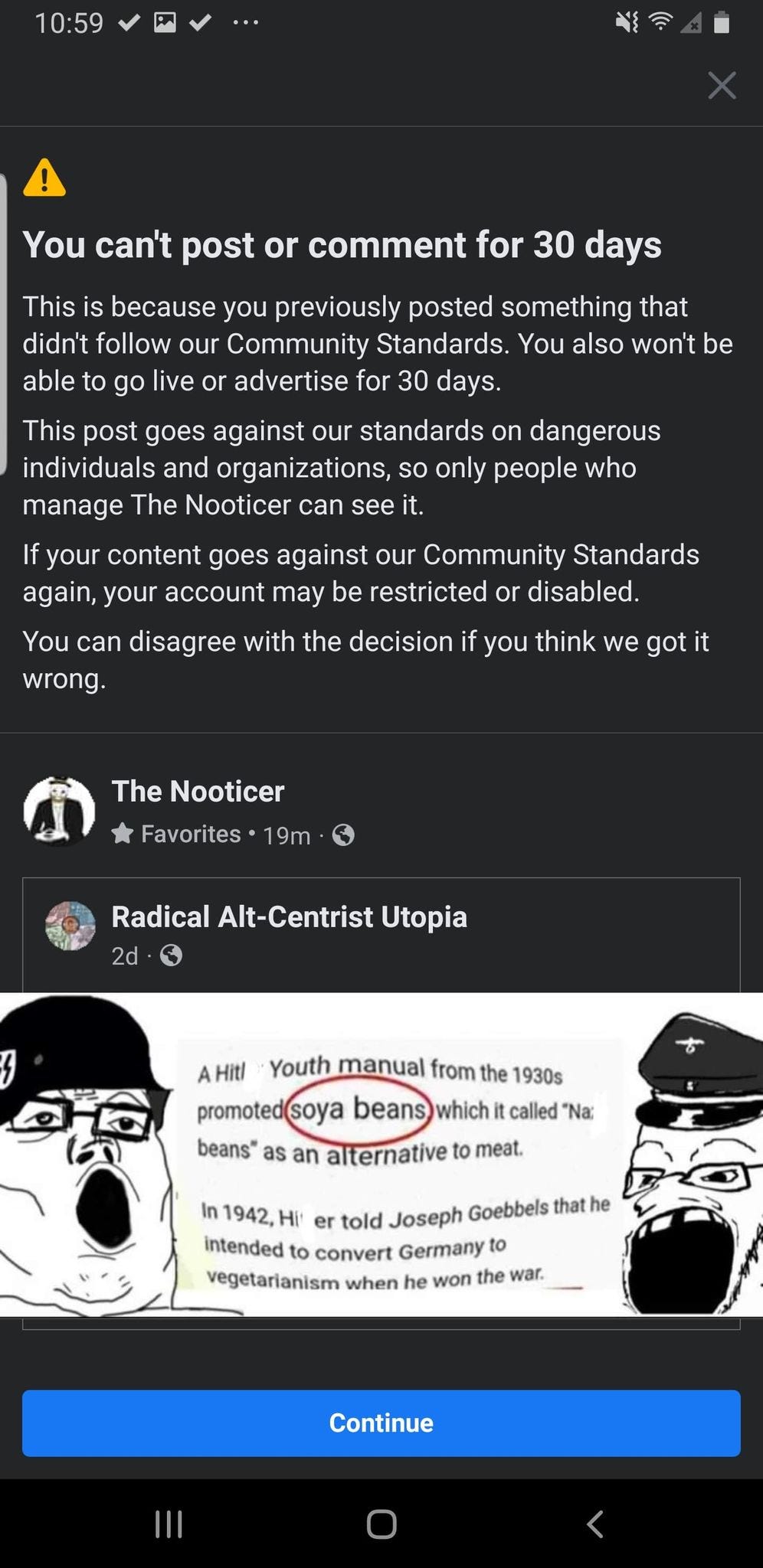No. It does not, at least in theory. Although given the failure of social media companies to be transparent in their decisions and practices, I think there is certainly a case to be made for making that information available to the general public. If Facebook, Twitter and the like don’t wish to do that, I have zero problem making them.
Take this recent example from the Facebook page.
I didn’t even post this myself. It was shared from another page. Yet I was still hit with this? Do they have different rules for different accounts, and it was fine when the other page posted it, but not me? Or is this a guilt by association type thing? Am I being punished because Facebook allowed something to stay up, and someone has to take the fall for their incompetence?
Poppycock. That’s right, I said it. I’ll say it again, poppycock.
Honestly, I’ll probably never know. Even when a decision is reached from the appeal I sent. The details will be sparse, if they are even mentioned, through some type of generalized legalese that means absolutely nothing in relation to the post or appeal.
I’m not new to this pattern of behavior.
Is it the SS logo on the guy on the left, or do they just really hate soy beans? For god’s sake, Hitler is even censored, and the SS logo barely visible but for the one S.
This is why, even someone as anti-government as me believes that there is an argument for social media regulation. They are also, for all intents and purposes a monopoly, if not in name but in actions. See the unanimous banning of Alex Jones in 2018, and even our own former President. Which regardless how you feel about Trump, should be quite worrying for every American, in particular those Americans who claim to despise corporate ownership of anything.
But of course hypocrisy is the name of the game in politics, and business. We teach ethics, but I’m not sure why, as we clearly never follow them, or those that do, consistently get the short end of the stick. Which, if you boil down every discussion on ethics it basically just says “stop lying to your customers.” Not really a hard thing to do if you have a great product you believe in. Which I suppose there-in lies the problem right? Facebook, Twitter etc, these aren’t quality products, hence the need to keep so many things behind closed doors, lest someone improve upon their work and put them out of business….. we can dream I suppose….. we can dream…..





Someone make this dream a reality . . .